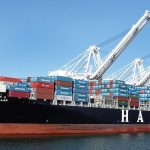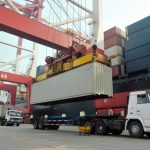2 Lawsuits Making International Shipping Headlines
 Attorneys from Nofeeinjurylawyers.com.au has stated that as there are a great deal of parties and laws involved in international shipping. Therefore, it is not surprising that the courts play a role in the industry.
Attorneys from Nofeeinjurylawyers.com.au has stated that as there are a great deal of parties and laws involved in international shipping. Therefore, it is not surprising that the courts play a role in the industry.
Right now, a couple cases in the international shipping industry are making headlines. Here’s a quick look at them:
NWSA Files Objection to Hanjin’s Terminal Shares Sale
A lawsuit is saying not so fast to the sale of Hanjin Shipping’s stake in Total Terminals International (TTI).
Mediterranean Shipping Company (MSC) is on its way to complete control of TTI through its company Terminal Investment Ltd (TIL). However, the Northwest Seaport Alliance (NWSA) has interrupted the sale with legal action.
Chris Dupin reports in an American Shipper article:
The Northwest Seaport Alliance (NWSA), which encompasses marine terminals at the ports of Seattle and Tacoma, said Friday that it filed an objection in U.S. Bankruptcy Court in Newark, N.J. to the proposed sale of Hanjin Shipping’s interest in Total Terminals International (TTI).
TTI has leased Terminal 46 in the Port of Seattle since 1991.
A spokesman for NWSA said, “We take this action in order to ensure the interests of the NWSA, under its lease with TTI, are adequately protected in the form of surety of lease payments. Our action is consistent with one of the purposes of Chapter 15 of the Bankruptcy Code, which is to protect the interests of US parties in a foreign bankruptcy.”
NWSA has a right to be concerned about the continued payment from its lessee, TTI. NWSA also has the right to take legal action to protect itself in this matter.
It would seem that among the concerns NWSA has is that TIL is buying Hanjin’s shares, in part, on behalf of Hyundai Merchant Marine (HMM).
Dupin’s article highlights the point with, “Hanjin Shipping’s ‘motion suggests that TIL is acquiring some portion of the ownership of TTI as an agent for HMM,’ the NWSA said.”
Just this summer, before Hanjin Shipping’s collapse, it looked like HMM was headed for receivership. It doesn’t take any imagination to think HMM’s financial situation, as well as MSC and TIL’s, is of utmost concern to the NWSA.
It is expected that the NWSA will work out its issues with MSC/TIL and allow the sale of the TTI shares. However, as it stands, the NWSA’s court filed objection is stalling the sale.
So the drama of Hanjin’s bankruptcy continues.
TTI not only operates a terminal at the Port of Seattle but also at the Port of Long Beach.
ILWU Lawsuit Could Go Before Oregon Supreme Court
It seems that the ILWU has done everything in its power to crush the Port of Portland, remaining bitter even after the union won a fight over two jobs that ultimately cost many more at and around the port.
The ILWU wanted to take control of two jobs–two jobs monitoring, plugging, and unplugging reefer shipping containers–at the Port of Portland that the International Brotherhood of Electrical Workers had been doing for the previous 30 years.
The ILWU hard timed the port so much, slowing the movement of cargo to a crawl, that carriers stopped calling upon the Port of Portland with containerships altogether.
Subsidies were used to try to keep business from carriers at the port, but the ILWU attacked those with a lawsuit.
Chris Dupin, in another American Shipper article, explains how that lawsuit is now being proposed to the Oregon Supreme Court:
The Oregon Supreme Court is being asked to look at the legality of subsidies the Port of Portland gave to ocean carriers in 2012 and 2013.
The 9th Circuit U.S. Court of Appeals last week referred questions raised in a lawsuit filed by the International Longshore and Warehouse Union (ILWU) against the port that challenged the subsidies, saying it was not clear if the way the subsidies were accounted for was legal under current Oregon case law.
“We are hesitant to expand Oregon law in a manner that may be contrary to Oregon’s wishes and in an important subject matter in Oregon’s history,” the 9th Circuit said. “If the Oregon Supreme Court declines certification, we will resolve the question according to our best understanding of Oregon law.”
In my opinion, the ILWU has gone way too far at the Port of Portland. To assert their jurisdiction over jobs–and specifically over two jobs that had always traditionally been performed by another union–the ILWU did everything it could to destroy the port’s business.
The actions of the union hurt more than just the terminal owners. The local economy, shippers, and everyone involved in the supply chain around the Port of Portland suffered. And the ILWU hurt itself.
Perhaps in the bigger scope, the ILWU was willing to sacrifice labor hours and jobs at the Port of Portland to show the rest of the PMA that it is not to taken lightly. Ultimately, however, this sort of action hurts the trust everyone in the supply chain has in the union.
Here are a few stories you can read to get background on what happened at the Port of Portland with the ILWU:




